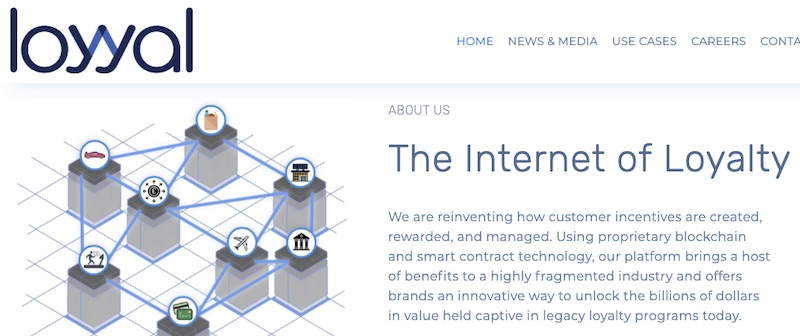Camp Drops: Your Gateway to the Great Outdoors
Explore tips, gear reviews, and adventure stories for outdoor enthusiasts.
Why Blockchain is the Secret Ingredient for Loyalty Program Success
Unlock the secret to loyalty program success! Discover how blockchain transforms rewards and builds lasting customer connections.
How Blockchain Enhances Transparency and Trust in Loyalty Programs
The advent of blockchain technology has revolutionized various industries, and loyalty programs are no exception. By leveraging a decentralized ledger, businesses can ensure that every transaction within a loyalty program is recorded transparently and immutably. This means that customers can track their rewards in real-time, with a clear history of points earned and redeemed. The use of blockchain not only minimizes the risk of fraud but also builds a sense of security; participants can trust that the rewards they accumulate are accurately reflected without the fear of mismanagement by the company.
Moreover, the transparency provided by blockchain enhances customer engagement. When customers are aware of how their data is being used and can verify their progress through a loyalty program, they are more likely to remain loyal to the brand. In a typical loyalty program, users often question the authenticity of the rewards system. However, with blockchain's secure and transparent nature, businesses can cultivate greater trust and loyalty among their customer base. Ultimately, by implementing blockchain, companies not only streamline operations but also foster a stronger relationship with their customers.

Counter-Strike is a highly popular first-person shooter game that focuses on team-based gameplay, where players compete in various scenarios such as bomb defusal and hostage rescue. Its competitive nature has led to a thriving esports scene, attracting players and audiences worldwide. If you're looking to enhance your gaming experience, be sure to check out the shuffle promo code for some exciting deals.
5 Key Benefits of Implementing Blockchain in Your Loyalty Program
1. Enhanced Security: By using blockchain technology, loyalty programs can significantly improve their security. Transactions recorded on a blockchain are immutable and encrypted, making it nearly impossible for fraudsters to alter loyalty points or personal information. This increase in security builds customer trust and ensures that their rewards are safe from hacks and breaches, which is crucial in a competitive market.
2. Improved Transparency: One of the standout benefits of implementing blockchain in loyalty programs is the level of transparency it offers. All transactions are recorded on a public ledger that can be accessed by all stakeholders, allowing customers to track their rewards in real-time. This transparency not only fosters customer loyalty but also encourages brands to uphold their promises in terms of reward redemption and point accumulation.
Is Blockchain the Future of Customer Loyalty: What You Need to Know?
As businesses continue to seek innovative ways to enhance customer loyalty, the concept of utilizing blockchain technology is gaining traction. Blockchain offers a decentralized and transparent system that can revolutionize how loyalty programs operate. With blockchain, customers can have a secure, tamper-proof record of their points and rewards, making the entire process more trustworthy and efficient. Companies that implement this technology may also benefit from reduced fraud and enhanced customer engagement, as they can create more personalized and targeted loyalty rewards.
Moreover, the integration of blockchain can lead to greater flexibility in loyalty programs, allowing customers to exchange points across various platforms and brands. This interoperability not only increases the value of loyalty points but also encourages customer retention in a competitive marketplace. As brands explore these possibilities, understanding how blockchain can reshape the future of customer loyalty is essential. Businesses that adapt to these advancements can position themselves as leaders in their industries, ultimately fostering a stronger connection with their customers.